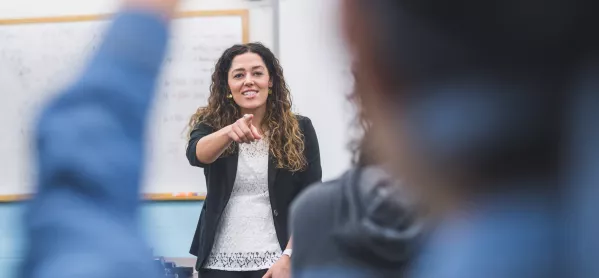- Home
- ‘We need to take control of the story of teaching’
‘We need to take control of the story of teaching’

On Saturday, alongside fellow teachers and headteachers, I attended BrewEdEssex to listen to a host of speakers and be part of an informal but powerful day of professional learning.
Organised by Dean Boddington, Vic Goddard, John Bryant and Jean Louis Dutaut, the focus for this particular BrewEd was teacher recruitment and retention.
The day got off to an excellent start with a presentation by Dr Sam Sims, research fellow at the Centre for Education Improvement Science at the UCL Institute of Education, who talked about some of the research that underpins his book The Teacher Gap, co-authored by Professor Becky Allen.
In the book, they write: “In recent years, a cocktail of box-ticking demands, ceaseless curriculum reform, disruptive reorganisations and an audit culture that requires teachers to document their every move have left the profession deskilled and demoralised. Instead of rolling out the red carpet for teachers, we have been pulling it from under their feet.”
This feeling certainly chimes with the teachers I talk to. It’s not just the constant change, the to-ing and fro-ing of the policy pendulum, the workload, the high stakes and the increased expectations of what schools can do for society, but the unremitting pressure that seems to say, “You are never enough.”
Teachers must seize control
Since 2010 there’s been an avalanche of advice to support research-informed practice and evidence-based instruction from all quarters. It’s become almost impossible to keep up with the latest thinking - this can be overwhelming for teachers. It creates a fear that you’re never quite staying up-to-date.
Like many teachers, I warmly welcomed Dylan Wiliam’s Tes article on 30 May, “Classrooms are just too complicated for research ever to tell teachers what to do.” In it, he counters the oft-mentioned medicine metaphor which quite frankly is unhelpful, tiresome and yet is a common and insidious analogy.
As I said on Saturday, teachers are always looking for the magic medicine and no one has had the good grace to tell them that they’re not sick.
Instead of finding more and more things for teachers to do, we should be universally saying, “We trust you, we value you, you do a good job!” Perhaps then we would see more people wanting to enter our profession.
In his #BrewEd talk on Saturday, Dr Sims also talked about self-determination theory (SDT). It’s a theory that links personality, human motivation and optimal performance. It grew out of Edward L Deci and Richard M Ryan’s work on internal and external motivation in the 1970s and 1980s. They concluded that both intrinsic and extrinsic motivation are highly influential determinants of our behaviour, and both drive us to meet the three basic needs identified by the SDT model: autonomy, determination and relatedness.
In our work as teachers, we need to create environments in which teachers feel they have control over their own agency and, as Andy Hargreaves says, we need to promote a culture of collaborative professionalism: we need to be connected with one another, we need that sense of relatedness.
Andreas Schleicher, director of education and skills at the Organisation for Cooperation and Economic Development (OECD), asks: “What do you need to create a responsive 21st-century school?”
He says: “Three key ingredients are teachers who are confident in their ability to teach, a willingness to innovate, and strong school leaders who establish the conditions in their schools that enable the former two ingredients to flourish. Effective school leaders are those who can make evidence-informed decisions, provide the instructional leadership that teachers need to help all their students succeed in school, and create a collaborative school environment in which teachers take part in school decisions.”
Research is necessary but not sufficient. As teachers, we need to be telling a different story about the work that we do and the positive impact we have on children and society. We need to #TalkUpTeaching to ourselves, to each other and to the wider society. We are not powerless; let’s be determined. We are agents of positive change and we need to take control of the story and the narrative we say about our profession. It’s time to #flipthesystem as individuals and as a body of teachers, and co-create a new alternative.
Rae Snape is the headteacher of The Spinney Primary School, Cambridge, a national leader of The Kite TSA and designer of #CambsEdFest
The Cambridgeshire Festival of Education takes place on 15 June, and will be rolling out a flamingo pink carpet for teachers. Tes is a media partner. Watch the keynote speeches here, and follow the event on Twitter with the hashtag #Flamingle19
Keep reading for just £1 per month
You've reached your limit of free articles this month. Subscribe for £1 per month for three months and get:
- Unlimited access to all Tes magazine content
- Exclusive subscriber-only stories
- Award-winning email newsletters


